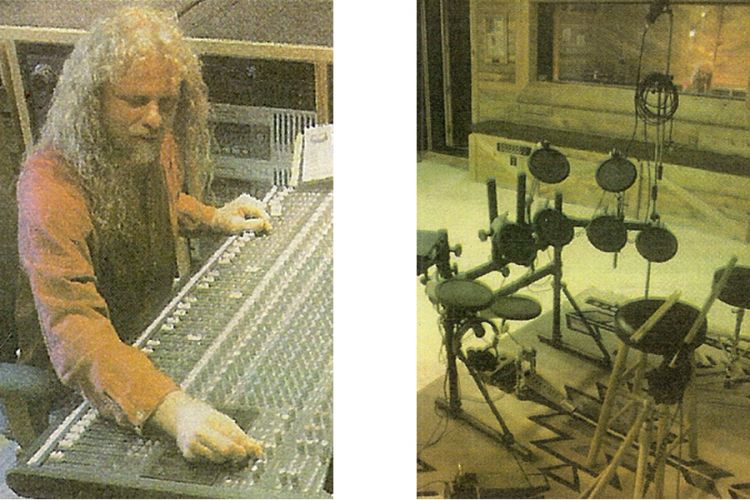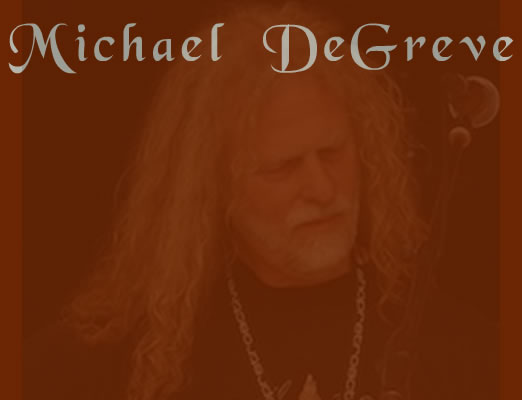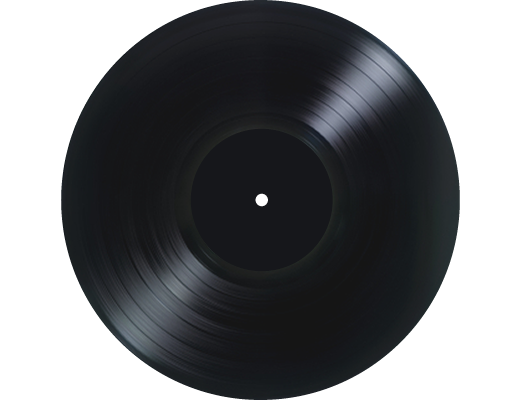Select an Article:
Music on the Range
by Karen Jansen Wyoming Tribune Eagle on Aug 13, 1999
Michael DeGreve is a Hollywood native who moved to Wyoming many years ago because he wanted to get far away from the crowds.
"I like people in Wyoming and the wide open skies," he said "There were 10 million people in Los Angeles, and here I only have one neighbor in four miles: I've always wanted a place where I could buy some land and build this studio: My mom asked when she first saw my house,. 'Do you know what this would cost in L.A.? ... Four million dollars ‘or something.'"
DeGreve lived in Hollywood during the 1960s and unexpectedly became interested in the music scene there.
'I was -an All-American basketball player," DeGreve said. "This wasn't what I' was going to do. In the late '60s I was going to the rock 'n' roll clubs in Los Angeles, listening to Jimmy Hendrix, the Doors, and WM a big Beatles fan . In 1968, I started playing the guitar, and I have been doing it now for 31years."
Degree said he was in between jobs and traveling around the country when his agent was booking the Hitching Post Inn', where he now plays nearly every night in the lobby.
"I liked the Hitching Post because it was cool and comfy and seats 100 people."
DeGreve was living in L.A. at the time and came to Wyoming for in 1977,
"I was looking for a change," DeGreve said. The people were really great to me here. Paul (Smith) and I left the contract open. That was 22 years ago. They just celebrated the 22nd anniversary."
DeGreve has a studio near, the mountains outside of Cheyenne, transforming an old building into a very functional and elaborate recording studio. It is constructed with interior wooden panels and can hold a small symphony. The panels are made especially for acoustic sounds to get the exact quality the musician wants.
"The insulation and sound-proofing in my studio is so sound-proof that you are not able to hear a loud rock'band while they are recording in the other room," DeGreve said.
He has 'digital and analog recording equipment available, a top-of-the-line electric piano and an electric drum set.
He charges $35 an hour for recording, and his studio is open to the public.
Digital recording is recording a master CD from a live performance, and analog recording is recording live music to a master cassette. Eventually the masters or final products are sent to a reproduction studio, which has the proper equipment to mass produce them.
"I would like to informally try to help out anyone who is interested in learning about how to'run a recording studio," DeGreve said.
He gave some advice to local musicians about the music business.
"Take music seriously if you have a desire to do it," DeGreve said. "The music business is a different world. It is best to use your own material and distribute your product."
Musicians are expressing themselves in Ii way that reveals their souls by recording original work in a studio . This is how local studio owner Derek Nelson described the way a desire to do it," DeGreve said.
"The music business is a different world. It is best to use your own material and distribute your product." This'is how local studio owner Derek Nelson described the way being in jazz band, orchestra, Casper Troopers and numerous other high school and college musical groups.
"I would love to teach younger kids who are interested in studio work if time prevails," Derek said. "UW and LCCC students can also do a musical audition and demo tapes in our studio."
The brothers said they enjoy hearing stories about their clients' music being sold and played on the radio. There are many local radio stations willing to play a musician's music if it is recorded in the proper format.
Veneno, a Latin band that recently recorded in the Nelson studio, is now NO.7 on New Mexico's radio stations. A band member of Veneno heard the news on the radio and called them right away.
"He was so ecstatic because he had heard his song," Derek said. "It made us feel great." They recommend recording original music instead of using another musician's work or cover material.
"We don't like to record cover music," Dere said. "We can and have recorded cover music for demos as long as our client gives the copyrighted credit to the right people."
Harley said they have witnessed indescribable joy when a band makes their own record and the process nears completion,
Recording can be pricey but worthwhile if you are a serious musician.
"We try to be as moderately priced as possible," he said. "Our studio has public access to people, and we charge $25 an hour for recording time and a flat rate of $20 for the mix down."
A mix down is a process used by studios to add clarity to the recording, the !'Ielsons said .. Recording a six-track digital CD II can cost anywhere from $200 to $1,500,
"Here's how our system works," Derek said. "Let's start with the microphones. We use all high-quality microphones and top-of-the-line equipment."
Derek said the microphones are high-energy for basic recording and condenser mikes for drum and acoustic, There also are specialty mikes for low-frequency sounds, "Once the sound is made into the microphone from the Instrument or voice, It runs Into a Mackie 24 channel mixing board where we can equalize the signal and monitor the frequencies," Derek said, " It then runs directly into our computer '" (and) the tracks are recorded directly into a 128-track software program,"
Once Derek has recorded and saved the tracks, any number of effects and transformations can be made with post-production options,
Sound can be amplified or given a delayed effect such as reverberation, or echoes, other effects at tile , studio include special filters, noise reductions and pitd1 blending, among others.
"Once all the necessary post¬production techniques are com¬pleted, it is mixed down into two tracks, stereo left and right," Derek said. "This can now be printed on DVD'or converted to 16-bit and printed on CD." He said .the process takes from , less than an hour for acoustic guitar and vocals to as long as more than 40 hours, from start to finish.
"Most musicians take approxi¬mately eight hours to record, but every musician or group can have varying recording time," Derek said. "Duplicating the CD costs about two grand and the musician or group receives 1,000 CDs on a standard run. That costs the musician about $2.50 per CD,"
They said the musician has the freedom to sell the CD at any cost, usually ranging from $10 to $16, depending on how much support the group or solo act has already received.
"It's a good investment If you believe in you’re music," Nelson said .. Some of the recent recordings at Wild Blue Yonder Studio have included CDs by Dave Miller, Carrie Faye and Jode Dereemer.
by Karen Jansen Wyoming Tribune Eagle on Aug 13, 1999
Michael DeGreve is a Hollywood native who moved to Wyoming many years ago because he wanted to get far away from the crowds.
"I like people in Wyoming and the wide open skies," he said "There were 10 million people in Los Angeles, and here I only have one neighbor in four miles: I've always wanted a place where I could buy some land and build this studio: My mom asked when she first saw my house,. 'Do you know what this would cost in L.A.? ... Four million dollars ‘or something.'"
DeGreve lived in Hollywood during the 1960s and unexpectedly became interested in the music scene there.
'I was -an All-American basketball player," DeGreve said. "This wasn't what I' was going to do. In the late '60s I was going to the rock 'n' roll clubs in Los Angeles, listening to Jimmy Hendrix, the Doors, and WM a big Beatles fan . In 1968, I started playing the guitar, and I have been doing it now for 31years."
Degree said he was in between jobs and traveling around the country when his agent was booking the Hitching Post Inn', where he now plays nearly every night in the lobby.
"I liked the Hitching Post because it was cool and comfy and seats 100 people."
DeGreve was living in L.A. at the time and came to Wyoming for in 1977,
"I was looking for a change," DeGreve said. The people were really great to me here. Paul (Smith) and I left the contract open. That was 22 years ago. They just celebrated the 22nd anniversary."
DeGreve has a studio near, the mountains outside of Cheyenne, transforming an old building into a very functional and elaborate recording studio. It is constructed with interior wooden panels and can hold a small symphony. The panels are made especially for acoustic sounds to get the exact quality the musician wants.
"The insulation and sound-proofing in my studio is so sound-proof that you are not able to hear a loud rock'band while they are recording in the other room," DeGreve said.
He has 'digital and analog recording equipment available, a top-of-the-line electric piano and an electric drum set.
He charges $35 an hour for recording, and his studio is open to the public.
Digital recording is recording a master CD from a live performance, and analog recording is recording live music to a master cassette. Eventually the masters or final products are sent to a reproduction studio, which has the proper equipment to mass produce them.
"I would like to informally try to help out anyone who is interested in learning about how to'run a recording studio," DeGreve said.
He gave some advice to local musicians about the music business.
"Take music seriously if you have a desire to do it," DeGreve said. "The music business is a different world. It is best to use your own material and distribute your product."
Musicians are expressing themselves in Ii way that reveals their souls by recording original work in a studio . This is how local studio owner Derek Nelson described the way a desire to do it," DeGreve said.
"The music business is a different world. It is best to use your own material and distribute your product." This'is how local studio owner Derek Nelson described the way being in jazz band, orchestra, Casper Troopers and numerous other high school and college musical groups.
"I would love to teach younger kids who are interested in studio work if time prevails," Derek said. "UW and LCCC students can also do a musical audition and demo tapes in our studio."
The brothers said they enjoy hearing stories about their clients' music being sold and played on the radio. There are many local radio stations willing to play a musician's music if it is recorded in the proper format.
Veneno, a Latin band that recently recorded in the Nelson studio, is now NO.7 on New Mexico's radio stations. A band member of Veneno heard the news on the radio and called them right away.
"He was so ecstatic because he had heard his song," Derek said. "It made us feel great." They recommend recording original music instead of using another musician's work or cover material.
"We don't like to record cover music," Dere said. "We can and have recorded cover music for demos as long as our client gives the copyrighted credit to the right people."
Harley said they have witnessed indescribable joy when a band makes their own record and the process nears completion,
Recording can be pricey but worthwhile if you are a serious musician.
"We try to be as moderately priced as possible," he said. "Our studio has public access to people, and we charge $25 an hour for recording time and a flat rate of $20 for the mix down."
A mix down is a process used by studios to add clarity to the recording, the !'Ielsons said .. Recording a six-track digital CD II can cost anywhere from $200 to $1,500,
"Here's how our system works," Derek said. "Let's start with the microphones. We use all high-quality microphones and top-of-the-line equipment."
Derek said the microphones are high-energy for basic recording and condenser mikes for drum and acoustic, There also are specialty mikes for low-frequency sounds, "Once the sound is made into the microphone from the Instrument or voice, It runs Into a Mackie 24 channel mixing board where we can equalize the signal and monitor the frequencies," Derek said, " It then runs directly into our computer '" (and) the tracks are recorded directly into a 128-track software program,"
Once Derek has recorded and saved the tracks, any number of effects and transformations can be made with post-production options,
Sound can be amplified or given a delayed effect such as reverberation, or echoes, other effects at tile , studio include special filters, noise reductions and pitd1 blending, among others.
"Once all the necessary post¬production techniques are com¬pleted, it is mixed down into two tracks, stereo left and right," Derek said. "This can now be printed on DVD'or converted to 16-bit and printed on CD." He said .the process takes from , less than an hour for acoustic guitar and vocals to as long as more than 40 hours, from start to finish.
"Most musicians take approxi¬mately eight hours to record, but every musician or group can have varying recording time," Derek said. "Duplicating the CD costs about two grand and the musician or group receives 1,000 CDs on a standard run. That costs the musician about $2.50 per CD,"
They said the musician has the freedom to sell the CD at any cost, usually ranging from $10 to $16, depending on how much support the group or solo act has already received.
"It's a good investment If you believe in you’re music," Nelson said .. Some of the recent recordings at Wild Blue Yonder Studio have included CDs by Dave Miller, Carrie Faye and Jode Dereemer.

Studio



























